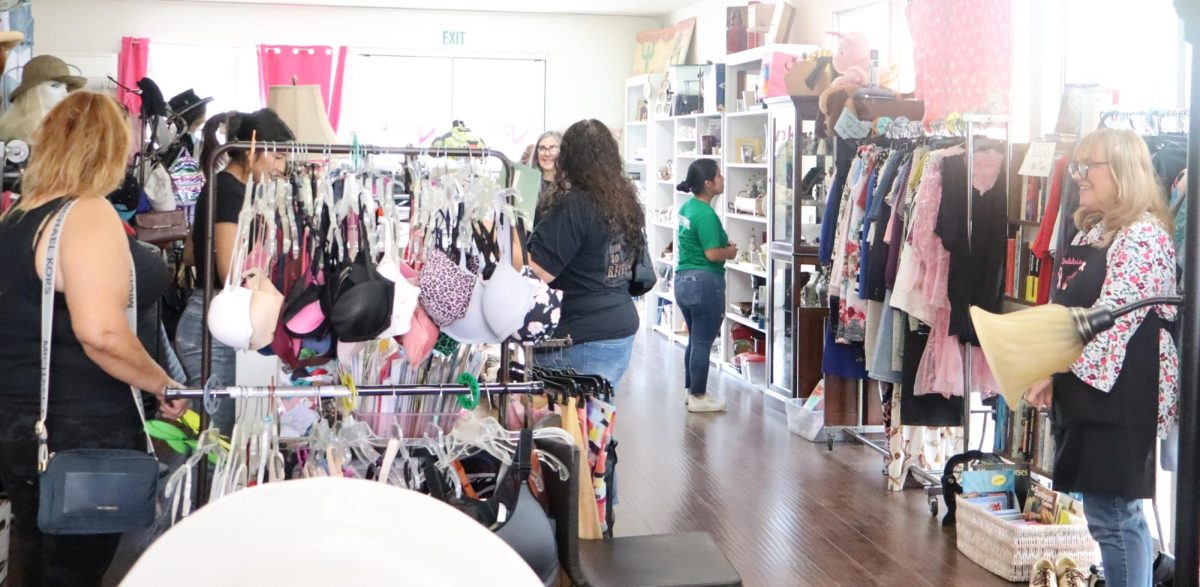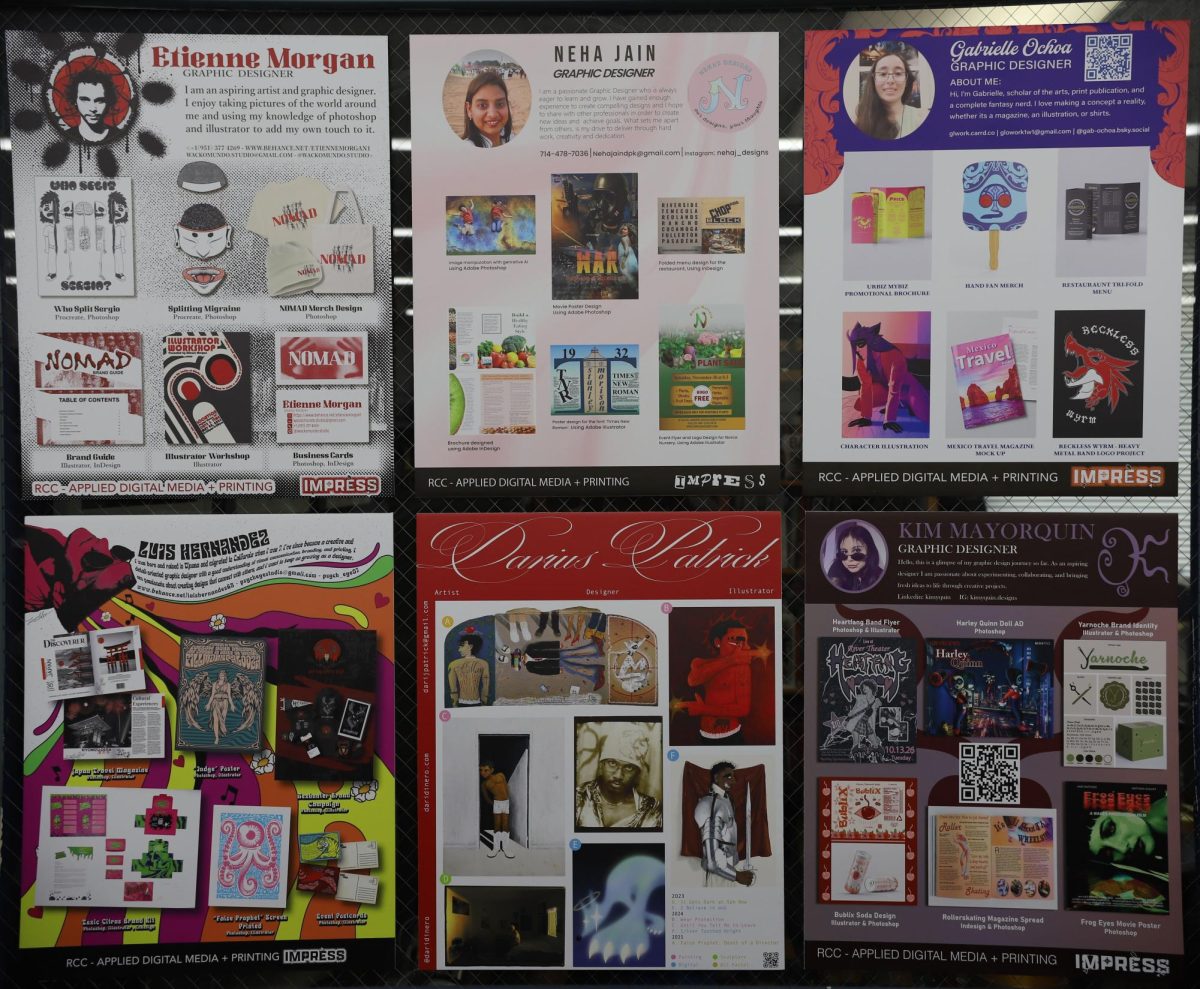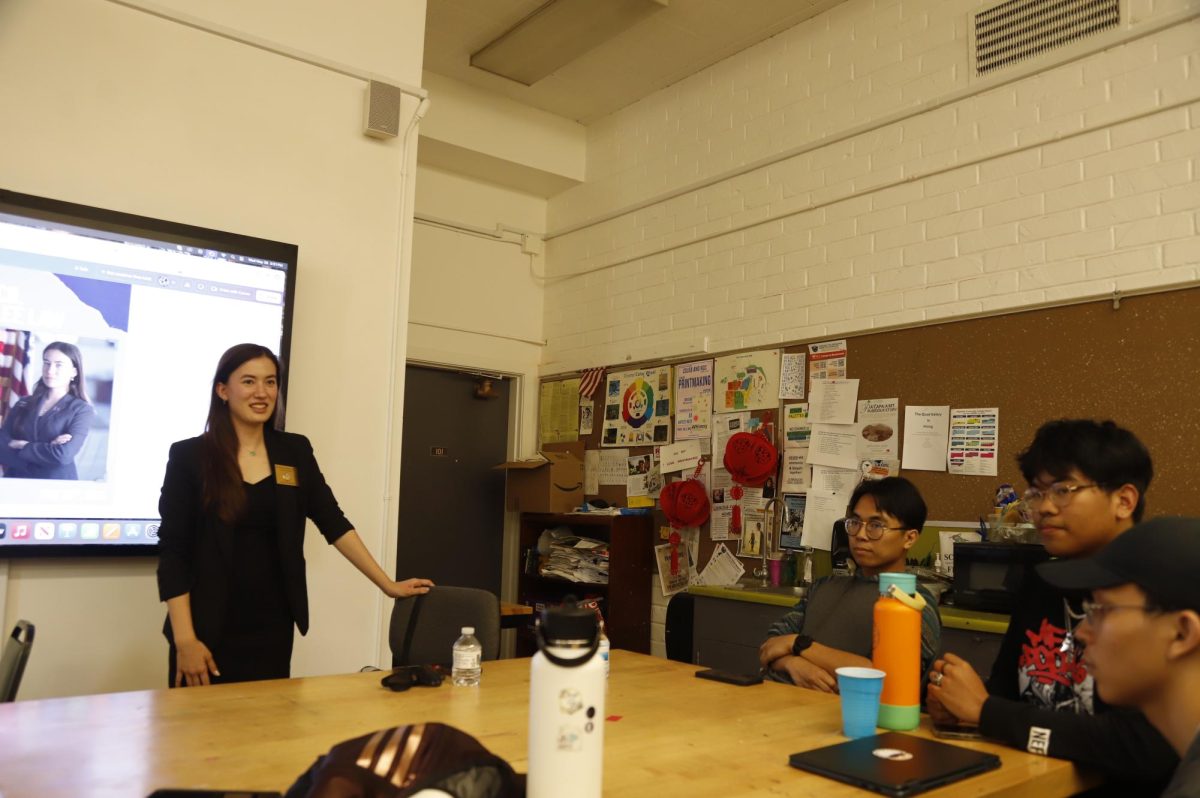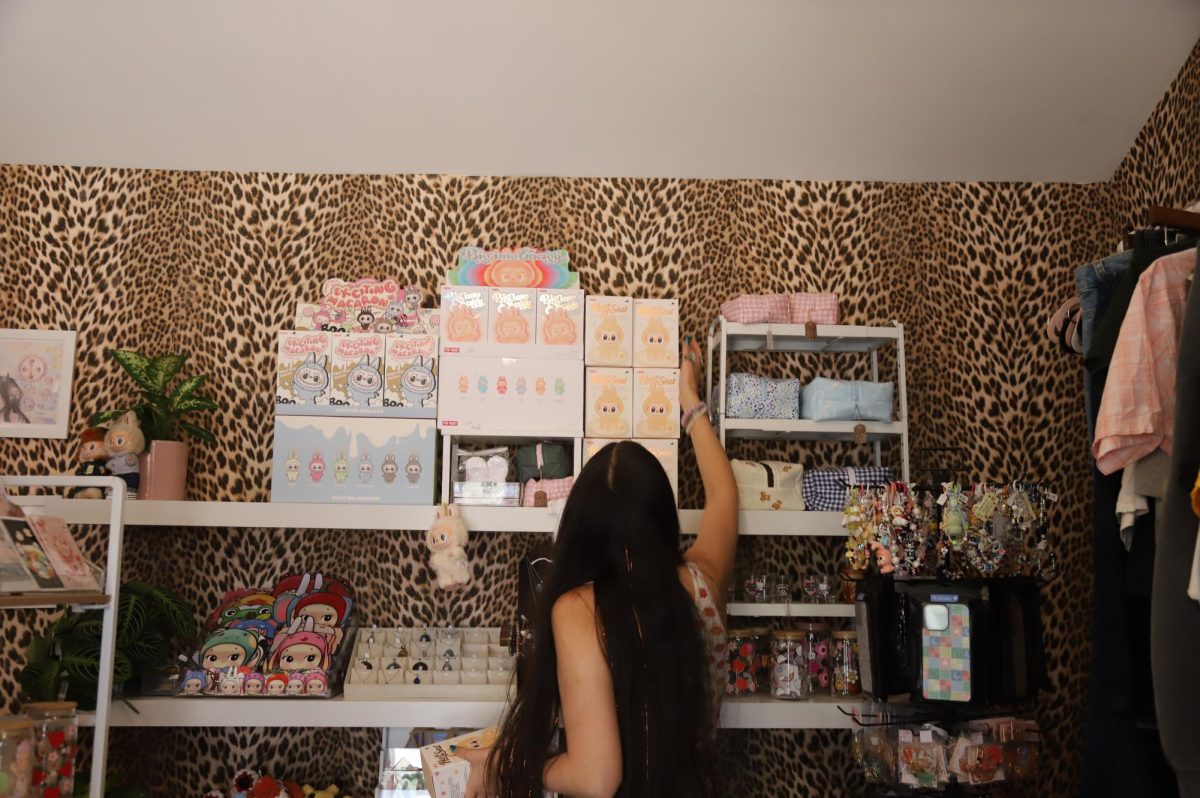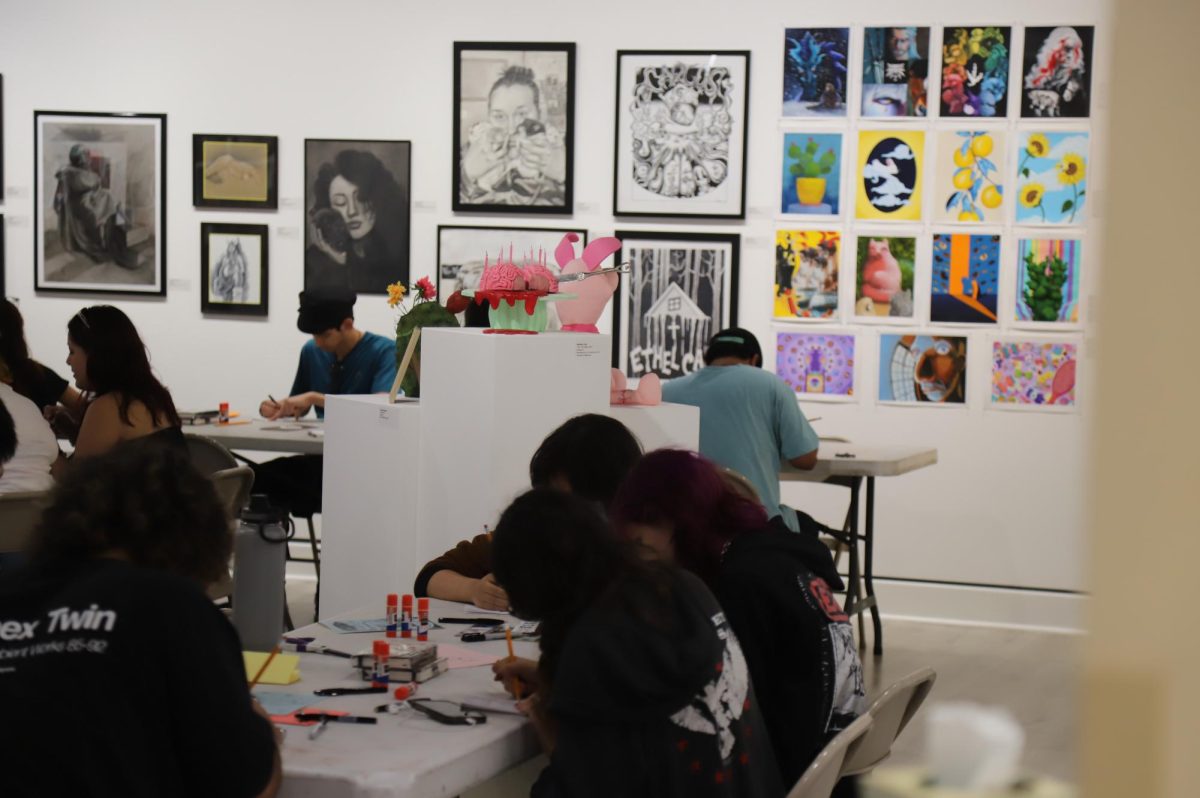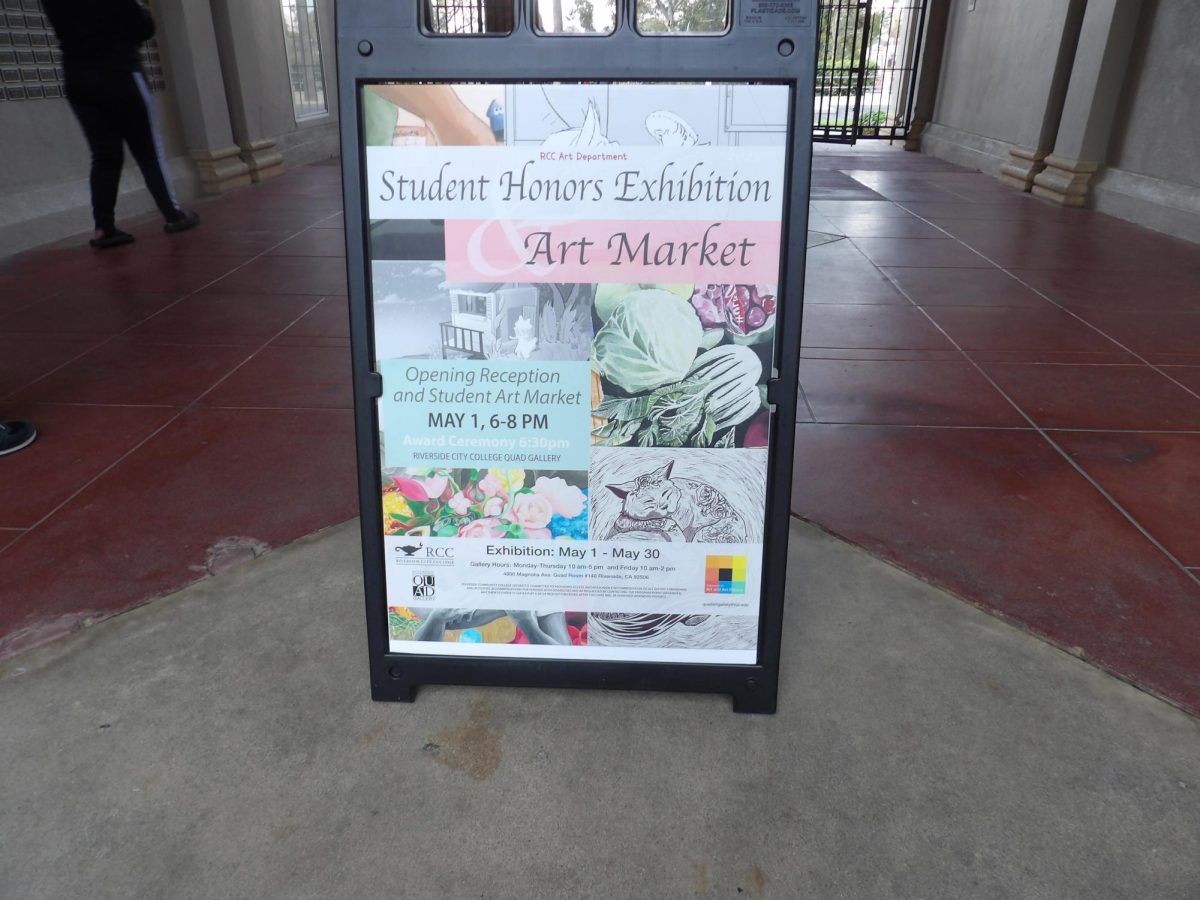Posted: March 30, 2015 | Written by Katarina Ayoub
Every week we take our trash to the curb for pick up and where it goes from there is never given a second thought. So where does it go? Let’s just say it doesn’t disappear from our lives entirely. In fact, tons of our garbage ends up in the ocean.
“Pardon my French here, but we’re kind of leaving a (expletive) for the generations to come,” said Samantha Lopez, president of the Student Sustainability club.
The Student Sustainability club held a screening in the Riverside City College Digital Library auditorium on March 13, presenting the documentary “Bag It: is your life too plastic?” to bring awareness to RCC students and the community of the serious effects plastic has not just in Riverside, our state or nation, but the world.
Statistically, the United States alone, produces approximately 220 million tons of garbage each year.
This amount of trash could cover the state of Texas two and half times.
“We have this kind of disposable culture where we use it once and it’s tossed,” Lopez said. “We don’t have a second thought about it, but this is really affecting us and it’s not a distant problem anymore; it’s now.”
The documentary brings to light the serious impact plastic is having on the world. About one million plastic bags are used every minute nationwide. When looking into the ocean, the two top items of refuse or is the infamous one-time use plastics bags, with cigarette buds leading as number one.
“We are hurting the environment and we are hurting the marine life,” said RCC student, Vera Brown Sisler.
When plastics break down, it doesn’t biodegrade; it photodegrades. This means the materials break down to smaller fragments which easily soak up toxins. It then goes on to contaminates soil, waterways and upon digestion, animals.
“A lot of the marine life has been here longer than we have,” Sisler said. “We have no right to tread on them.”
The goal for the Student Sustainability club is to help facilitate positive changes for generations to come.
“Leaving a little grain of awareness is really my goal,” Lopez said. “Getting people to recognize their use of resources and make some changes.”
Although the ban to place a tax on paper and plastic bags was to take effect this July, the American Progressive Bag Alliance gained enough signatures to overturn the plastic bag ban. The election to pass or ban this law will take place in the 2016 election.
“We are jumping on what’s already being put in motion,” Lopez said. “Plastic bags is something that is easy to see and easy to find an alternative. I think it’s a good place to start.”
Another large accomplishment for the student sustainability club has been the community garden.
“We wanted a space for community members and an educated space for people to come and get hands on learning (to) be able to grow their own produce,” Lopez said.
Currently those who work in the garden get to take the food they grow home. Eventually, the goal for the community garden is to have enough involvement from the community to be used a resource for those in homeless shelters.
“It’s work. If you start this you have to be committed to doing it,” Lopez said.

